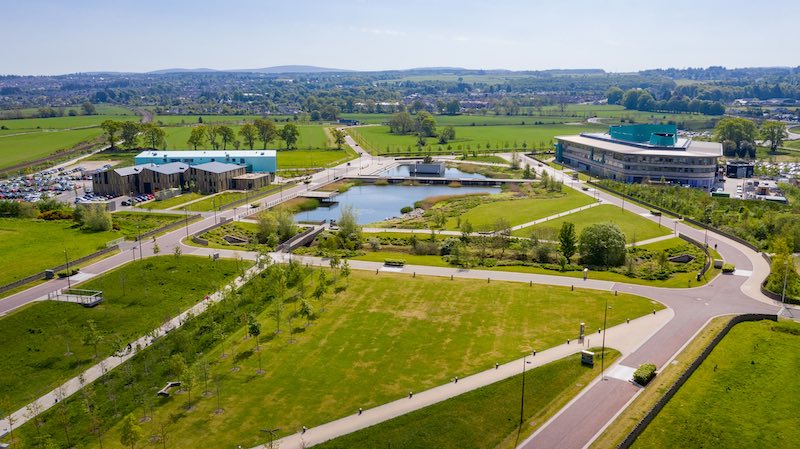Contracts awarded before the COVID lockdown for design work on two key projects on Inverness Campus have been able to progress via remote working of the project teams.
One is for a new life sciences innovation centre on plot 15, and the other is a ‘modular village’ development for small business units on plot 14.
The 2700m² life sciences innovation centre is a joint project between the developer of Inverness Campus, Highlands and Islands Enterprise (HIE), and the University of the Highlands and Islands.
It will operate in close partnership with NHS Highland and the proposed Elective Care Centre also planned for Inverness Campus.
The centre aims to build on the successes of the Centre for Health Science, which is situated in the grounds of Raigmore Hospital.
Lead design consultancy firm Austin-Smith: Lord was appointed to take the project through the design and consenting stages, with a planning application expected to be submitted within the next few weeks.
The “modular village” will be a plot of small buildings that can be developed quickly and fabricated off-site.
They will be aimed at commercial organisations, such as those in the life science and technology sectors, who are looking to collaborate with academia and research bodies.
Engineers, Will Rudd Davidson, were appointed to design the infrastructure roads, utilities and landscaping for the plot at the south end of the site.
Both contracts were awarded by HIE prior to the COVID-19 lockdown restrictions, and contractors are working from home.
Ruaraidh MacNeill, HIE’s Inverness Campus project director, said:
“We are very pleased to be able to progress these projects safely in light of the current restrictions around COVID-19.
“The life sciences innovation centre will create new technology-based commercial opportunities and high value careers.
“It will also support the continued growth of the University of the Highlands and Islands through new education and research opportunities.
“The modular village will see options for new and flexible types of commercial buildings on the site, that are in keeping with the quality building and environmental standards of Inverness Campus.
“When complete, it will offer flexibility to the growing organisations who are benefiting from the advantages of Inverness Campus as a business location.”
The University of the Highlands and Islands element of the life sciences innovation centre secured £9 million from the UK Government through the Inverness and Highland City-Region Deal.
The Deal is a joint £315 million initiative supported by both the UK and Scottish governments.
The project will also be part-funded by the European Regional Development Fund (ERDF) European Structural Funds Programme 2014-2020.
Cabinet Secretary for Transport, Infrastructure and Connectivity Michael Matheson said:
“Scotland is recognised as a world leader for our work in the life sciences and innovation sector, so it’s hugely encouraging to see this project take a significant step forward.
“This is also yet another example of a business in Scotland adapting how they do things to support long-term productivity and economic growth – despite the challenges presented by the COVID-19 pandemic.
“The Scottish Government has committed up to £135 million to the Inverness and Highland City Region Deal.
“This, combined with the package of support we have announced for businesses across the country, will help Scotland’s communities survive this crisis and thrive in future.”
UK Government minister Douglas Ross said:
“It’s really welcome news that progress is being made on the life sciences innovation centre at the University of the Highlands and Islands during these unprecedented times.
“The £315 million city region deal initiative continues to create high value jobs and attract further investment and new businesses to the area.
“Research and innovation is the jewel in the crown of our world-leading higher education sector and we are working closely with universities and other partners to provide stability during these difficult times, including the creation of cross-UK Ministerial Taskforce on research sustainability.”



